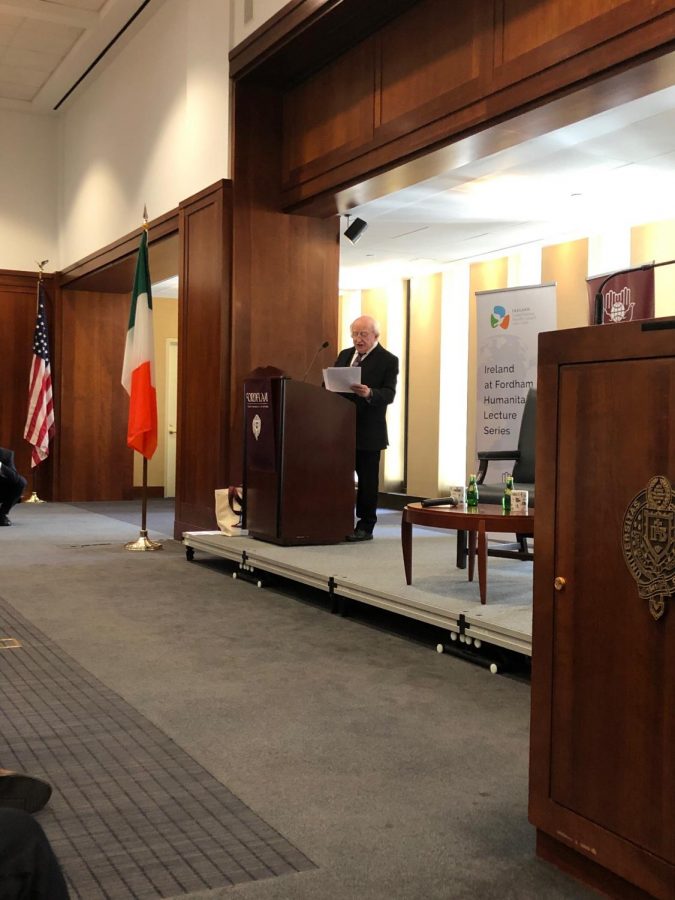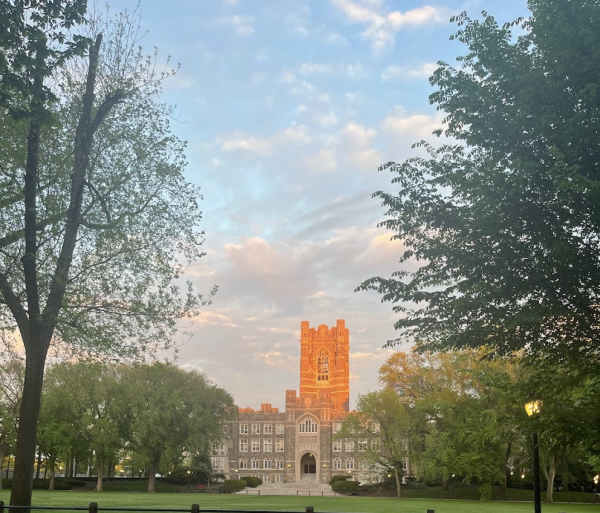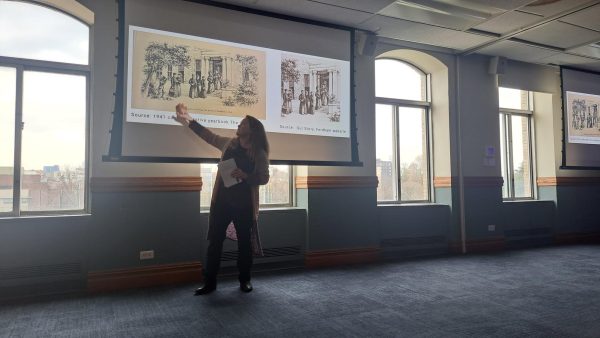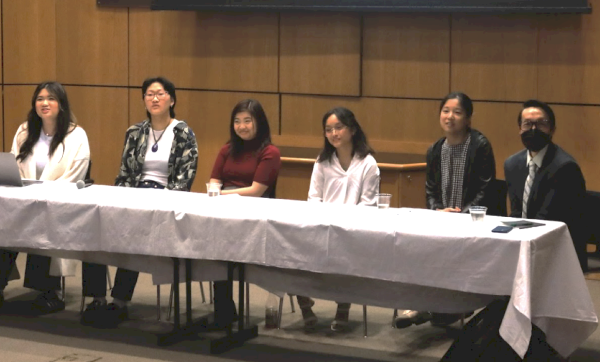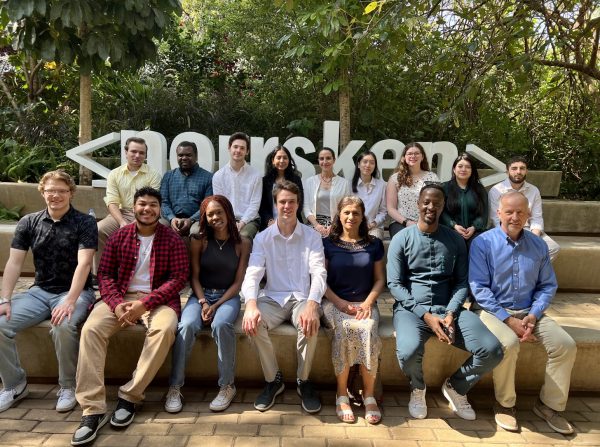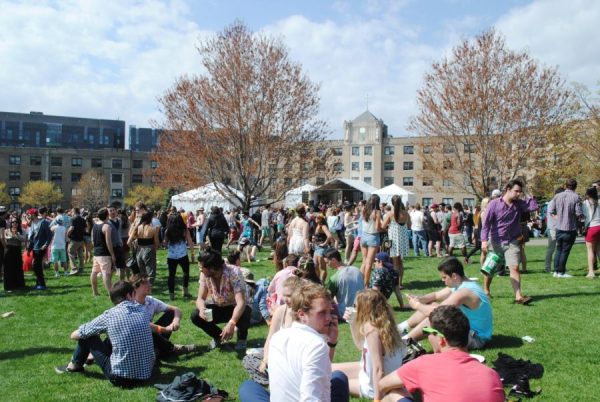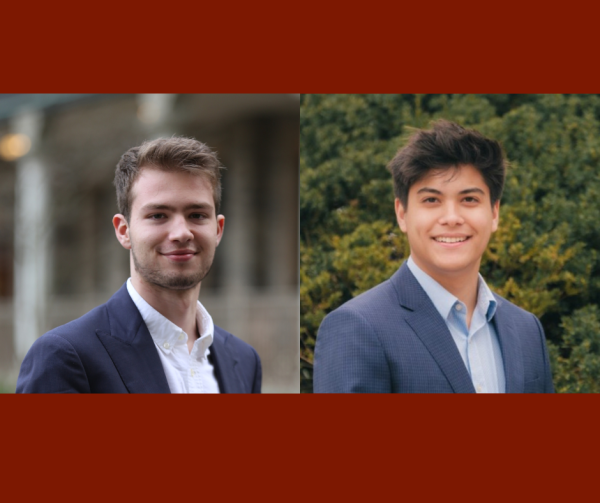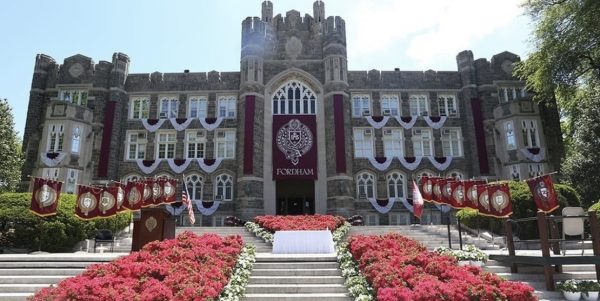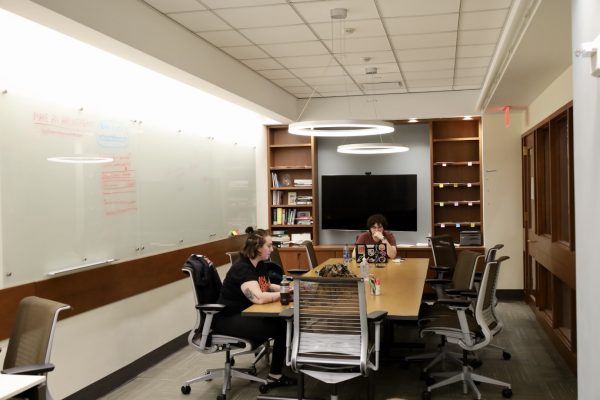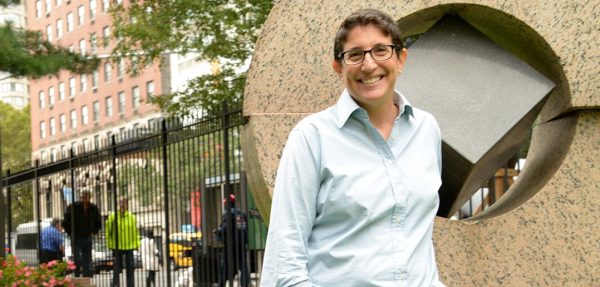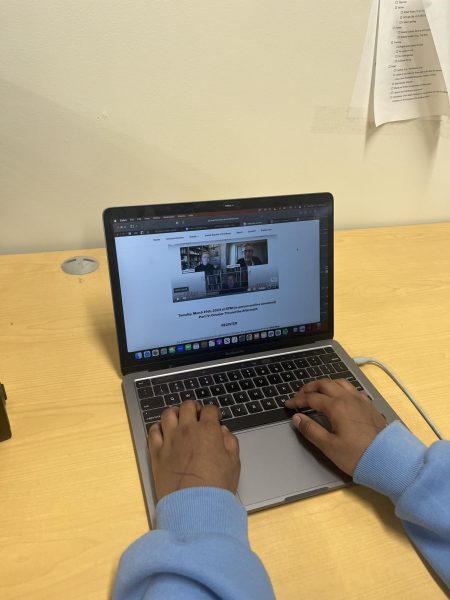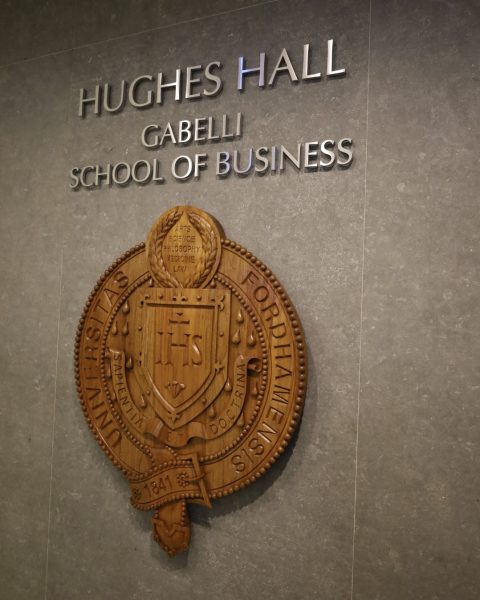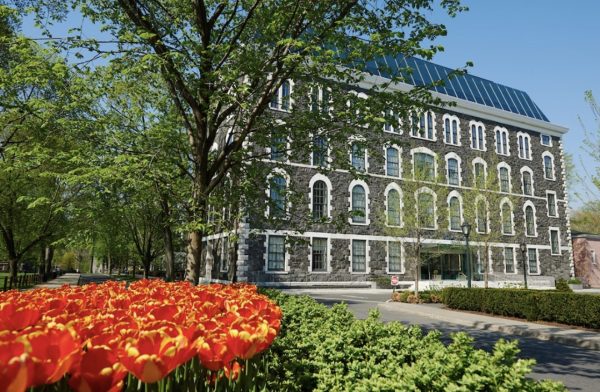President of Ireland Gives Address About Humanitarianism
Michael D. Higgins, president of Ireland, spoke as part of Fordham’s Humanitarian Lecture Series.
Michael D. Higgins, president of Ireland, gave an address on “Humanitarianism and the Public Intellectual in Times of Crisis” at the Fordham University’s Lincoln Center campus on Monday, Sept. 30. The talk was part of Fordham’s Humanitarian Lecture Series, a collaboration between the Permanent Mission of Ireland to the United Nations and Fordham’s Institute of International Humanitarian Affairs.
Higgins has served as Ireland’s head of state since November of 2011 and was reelected in 2018 to serve another seven years.
He was one of the 40 heads of state and government who attended and spoke at the first-ever World Humanitarian Summit in Istanbul in May 2016. He also has vocally supported the work of Irish Aid and the LÉ Eithne, an Irish naval vessel that has saved over 2,700 people who have attempted to cross the Mediterranean during the migration crisis.
In his introductory speech for Higgins, Rev. Joseph M. McShane, S.J., president of the university, stressed the importance of immigration.
“We are great because of immigrants,” he said. “Not in spite of immigrants.”
McShane touched upon how embracing immigrants is a central goal of Fordham University and is becoming more pressing as the international refugee crisis grows.
In June, the United Nations Refugee Agency (UNHCR) reported that the number of displaced people worldwide is 70.8 million, the highest in UNHCR’s history.
Higgins dedicated most of his speech to the refugee crisis.
“A moment of truth has arrived for all institutions,” he said.
He emphasized the plight of refugees and how governments, universities and other establishments are responsible for addressing this issue.
Higgins also emphasized the fragile condition of those who are displaced.
“The migrant experience is a journey of special vulnerability imposed on top of existing vulnerability,” he explained. “Not only do refugees lose their homes … they also lose the political framework in which they had the right to have rights.”
According to Higgins, this vulnerability is what makes the refugee crisis in need of immediate response.
Higgins criticized the lack of success within the current systems that address the crisis of immigration. He vocalized his support for more sustainable and just reform.
“I have been arguing for an exit from the old paradigm,” he said. “And towards a new paradigm with a connection of economy, ecology, society and indeed, ethics.”
Ireland has begun implementing policies within the country that work to converge these components, including developing a community sponsorship program that hosts refugees arriving in the country. The country has also agreed to accept 4,000 refugees in response to the war in Syria and offered $16.5 million to the UNHCR in 2019.
Higgins went on to condemn the lack of empathy for refugees and those in authority who use what he called “toxic language” that alienates those struggling for survival, most specifically the narrative of the “other.” He stated that this culture of indifference helps to uphold neo-nationalism by exploiting fear.
“Stereotypes provide fertile ground for political extremism,” Higgins commented. “It must be opposed with courage.”
Higgins believes that when people lack solidarity for refugees, they go against what it means to be human.
“What is lost in one of the most fundamental tenets of humanity — helping those in need,” he stated.
To combat this issue, Higgins urged public intellectuals and universities to lead the dialogue on the refugee crisis.
“Public intellectuals have a crucial role to play,” he said. “They can play a critical role in offering the discourse on the humanitarian crisis … which has too frequently been soured by hatred.”
Higgins held universities accountable for their responsibility within the problem. He urged them not to neglect the important role that conversation plays in shaping the response to crises. He concluded on an optimistic note by maintaining that education and conversation can play an important role in the refugee crisis.
“Yes, ideas matter,” he stressed, “for bonding and bridge-building.”
Higgins’ role is mainly a ceremonial office that transcends party politics , although the office does exercise certain limited powers including signing legislation into law and referring bills to Ireland’s Supreme Court. These responsibilities include being a representative of the country in international visits and public engagements, appointing people to various offices of State and being the supreme commander of the Irish Defence Forces.
Aside from politics, Higgins is renowned as a published poet and writer. He has helped write various books that deal with Irish political, cultural, sociological and historical life. He worked in a factory and as a clerk before becoming a first-generation college student at the University College Galway, the University of Manchester and Indiana University.
He was a lifelong member of the Labour party in Ireland and has served as a mayor, a senator, a TD in the Irish parliament and as a minister for culture in the 1990s.
Higgins recently spoke at other institutions while in New York before visiting Fordham this Monday. He gave a speech at New York University on Tuesday, Sept. 24, during which he urged the United States to reconsider their withdrawal from the Paris Agreement.
Higgins also gave an address to the United Nations General Assembly in New York on Wednesday, Sept. 25. He spoke about the need for immediate action in response to climate change.

